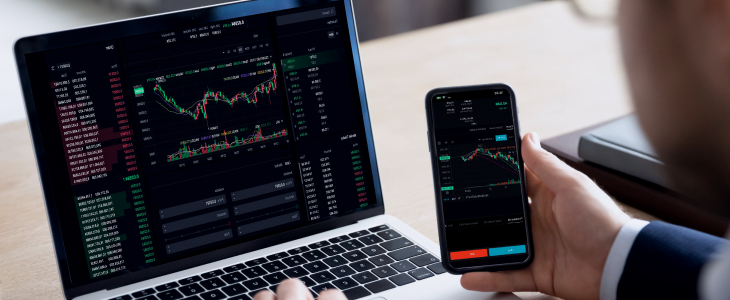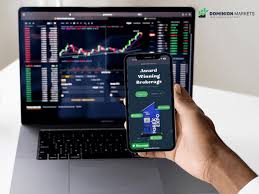
When entering the world of financial markets, understanding your tools and options is crucial for success. One of the essential tools in Forex trading is the forex trading account Trading Brokers account. This article aims to provide a comprehensive overview of Forex trading accounts, their types, features, and how to choose the right one for your trading needs.
What is a Forex Trading Account?
A Forex trading account is a platform where traders can execute buy and sell orders on currency pairs. It serves as the interface between the traders and the broker, allowing them to manage their investments, analyze market trends, and access trading tools. A trading account holds the funds and allows for the execution of trades based on the trader’s strategy.
Types of Forex Trading Accounts
There are several types of Forex trading accounts available, each catering to different levels of experience and trading styles. Here, we will discuss the most common types:
1. Demo Accounts
Demo accounts are primarily designed for beginners who want to practice trading without risking real money. These accounts provide virtual currency, enabling traders to familiarize themselves with the trading platform and test various strategies. Most brokers offer demo accounts with features similar to live accounts, allowing traders to experience real market conditions.
2. Standard Accounts
A standard Forex trading account is typically recommended for traders who have some experience in the market. With this type of account, traders can trade in standard lot sizes (100,000 units of currency). Standard accounts usually require a larger initial deposit and provide access to leverage, which can amplify potential profits but also poses higher risks.
3. Mini and Micro Accounts
Mini and micro accounts are ideal for beginners or those looking to trade with smaller amounts. A mini account typically allows for trading with a lot size of 10,000 units, while a micro account allows for trading with just 1,000 units. These accounts provide a lower entry barrier and help traders practice risk management with less exposure.
4. Managed Accounts
Managed trading accounts are an option for investors who prefer to have their funds managed by professionals. In this case, the investor entrusts their capital to a portfolio manager or a trading firm that executes trades on their behalf. This option might come with higher fees but is suitable for those who lack the time or expertise to manage their account actively.
5. Islamic Accounts
For traders who observe Islamic law, brokers often offer Islamic accounts, which comply with Sharia law. These accounts typically do not charge or earn interest (swap-free accounts) and allow traders to engage in Forex trading without contravening their religious beliefs.
Choosing the Right Forex Trading Account
Choosing the right Forex trading account is crucial to your trading journey and can significantly impact your performance. Here are some factors to consider when selecting an account:
1. Trading Style
Your trading style will largely influence the type of account you choose. If you’re a long-term investor, a standard account may suit you best. In contrast, if you’re a day trader or a scalper, a mini or micro account might be more appropriate, as they allow you to execute trades with less risk.
2. Leverage and Margin

Understand the leverage options available and how they align with your risk tolerance. While higher leverage can lead to increased profits, it can also amplify losses. Make sure to choose an account that offers leverage you are comfortable with and be mindful of margin requirements.
3. Fees and Commissions
The cost of trading should also play a significant role in your decision-making process. Different brokers have varying fee structures, including spreads, commissions, and withdrawal fees. Assess your trading frequency and volume to determine which broker’s fee structure aligns with your trading strategy.
4. Trading Platform
Ensure that the trading account you choose comes with a reliable and user-friendly trading platform. A good trading platform should provide essential tools for technical and fundamental analysis, fast order execution, and a customizable interface.
5. Customer Support
Lastly, consider the quality of customer support offered by the broker. As a trader, you may encounter issues that require immediate assistance. Choose a broker with responsive support that can help you resolve issues in a timely manner.
Funding Your Forex Trading Account
Once you have chosen the right Forex trading account, the next step is to fund it. Most brokers offer a variety of deposit methods, including bank transfers, credit/debit cards, and e-wallets. Choose a method that is most convenient for you, and make sure to be aware of any fees associated with the transaction.
Managing Your Forex Trading Account
Effective account management is essential for maintaining control over your investments. Here are some tips for managing your Forex trading account wisely:
1. Set a Trading Plan
Before you start trading, it’s crucial to have a well-defined trading plan in place. Your plan should include your trading objectives, strategies, risk tolerance, and rules for entering and exiting trades. Sticking to your plan can help you avoid emotional trading decisions.
2. Use Risk Management Strategies
Implementing risk management strategies is vital to protect your capital. Determine how much of your account balance you are willing to risk on each trade and set stop-loss orders to minimize potential losses. Consistent risk management will contribute to your long-term success as a trader.
3. Keep a Trading Journal
Documenting your trades in a trading journal can provide valuable insights into your performance. Analyze successful and unsuccessful trades to identify patterns and improve your strategy over time. Regularly reviewing your journal will help you become a more disciplined and effective trader.
Conclusion
Understanding Forex trading accounts is the first step toward becoming a successful trader. The type of account you choose, how you manage it, and the strategies you implement will play a significant role in your trading journey. Take your time to research and explore various brokers, account types, and trading strategies. By doing so, you’ll build a solid foundation that can help you navigate the exciting world of Forex trading with confidence.
Overall, investing time in understanding Forex trading accounts, along with practicing risk management and keeping a disciplined approach, will prepare you for the challenges and opportunities that lie ahead in your trading career.



